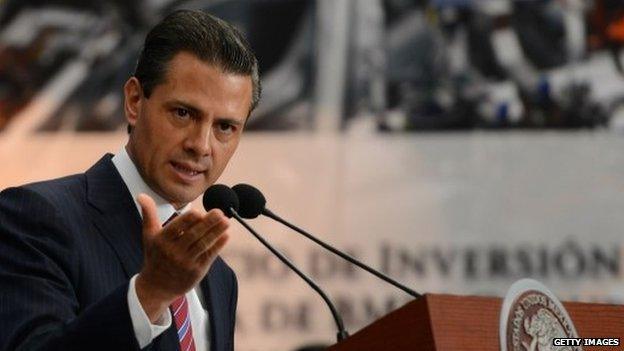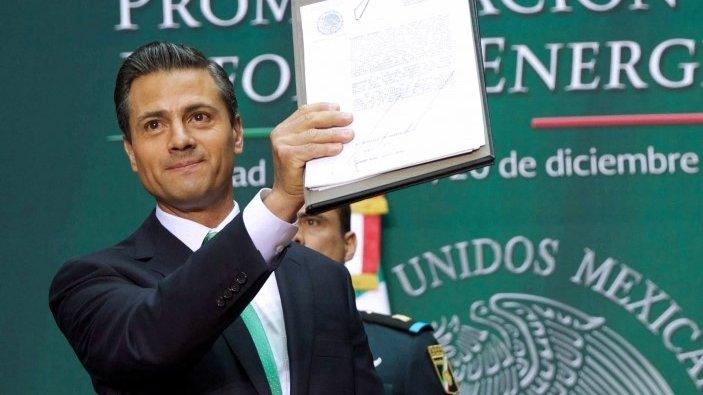Mexico approves oil sector reforms
- Published

Workers in an energy revolution on a Pemex owned oil rig in the Gulf of Mexico
Mexico's Congress has approved sweeping changes to the country's energy industry which will see private oil contracts awarded in the country for the first time since 1938.
New laws voted in on Wednesday will open the market to foreign oil firms.
As a result, state-owned energy group Pemex will lose the monopoly it has held since nationalisation.
President Enrique Pena Nieto has made energy reform the cornerstone of his administration.
He expects the changes will boost production back to 2004 levels by 2025.
Crumbling infrastructure, bureaucracy and corruption have pared Mexican production from 3.6 million barrels a day in 2004 to just 2.5 million.
The ending of Pemex's monopoly required changes to the constitution, signed into law last year.
The reforms are expected to attract billions of dollars of investment into the country, the world's ninth-largest oil producer.
They also authorise private production of electricity.
President Pena Nieto tweeted: "A more competitive and prosperous Mexico. They have laid the foundation for a new era of development and prosperity for Mexican families."
Competition
Pemex, known officially as Petroleos Mexicanos, will have to compete with international giants such as Chevron, Exxon Mobile and BP.
Bidders are expected to start signing new contracts with the Mexican state from 2015 to explore, produce and refine oil.
Until now, they were only allowed to hold service contracts with Pemex.
The break-up of the oil industry is the climax of years of attempts to liberalise the Mexican economy that began in the early 1980s.

President Pena Nieto is achieving his reform agenda
In July, new legislation forced the break-up of billionaire Carlos Slim's America Movil empire, Latin America's biggest telecoms company.
Controversy
The most controversial part of the energy reforms is a provision to transfer about one-third of the state oil company's pension debts to the federal government's balance sheet.
Opponents to the bill said taxpayers would have to bear the cost of years of mismanagement of the pension fund.
To make their point, they carried a life-size picture of the late President Lazaro Cardenas, who nationalised the industry in 1938, on to the floor of the Senate.
- Published9 July 2014

- Published3 June 2014

- Published21 December 2013
